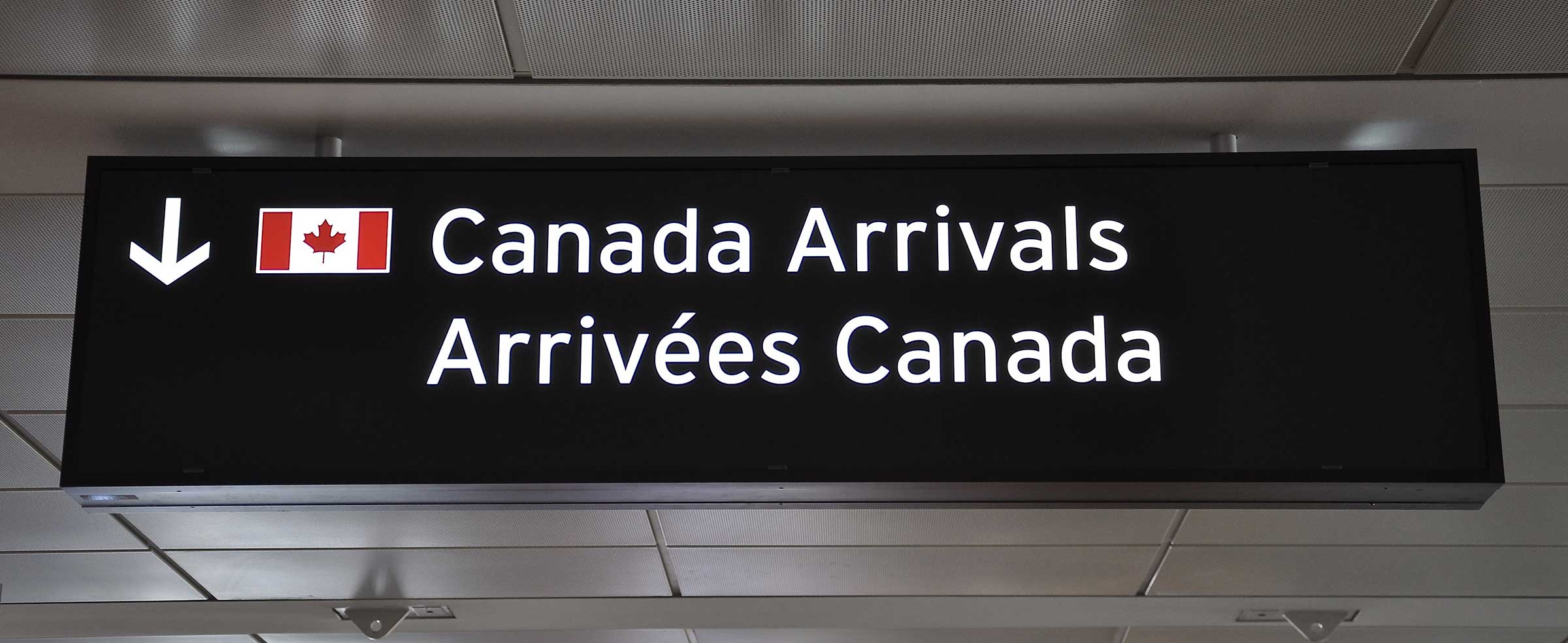Canadian Public Opinion about Immigration and Refugees - Fall 2021

As part of its Focus Canada public opinion research program (launched in 1976), the Environics Institute updated its research on Canadian attitudes about immigration and refugees. This survey was conducted in partnership with the Century Initiative. This survey is based on telephone interviews conducted (via landline and cellphones) with 2,000 Canadians between September 7 and 23, 2021 A sample of this size drawn from the population produces results accurate to within plus or minus 2.2 percentage points in 19 out of 20 samples.
Executive summary
The past year in Canada has been like no other due to the ongoing COVID-19 pandemic, which persists on the strength of new variants despite a monumental vaccination campaign. Governments have striven to manage the new pandemic reality through programs supporting lost income and employment, and policies to balance public health restrictions with the resumption of normal activity. As the country moved past the crisis phase, the politics and issues of the pre-pandemic past have begun to resurface. Immigration and refugees (and multiculturalism more broadly) have not been front and centre over the past year, and were largely absent as an issue during the recent federal election. But some may be wondering how much the difficulties and stress of the past year have affected Canadians’ capacity for openness to others.Results from the latest Focus Canada survey reveal that Canadians continue to be largely positive and supportive about immigrants and refugees, who are much more likely to be viewed as making a positive contribution to the country than posing a threat. Opinions over the past 12 months are mostly stable, although small declines in positive sentiments have been recorded in several key measures that reverse similar gains dating over the previous year. A clear majority supports current levels of immigration, views immigrants as good for the Canadian economy, and believes they are important for building the country’s population. An increasing plurality rejects the idea that too many refugees are not legitimate, and most would like to see more of them accepted from places experiencing major conflicts. There is clear public support for the recently-announced decision to accept 20,000 Afghan refugees fleeing the Taliban, although one in four Canadians say this number is too few. Public concerns about immigration continues to be mostly centred around some immigrants are not adopting Canadian values, but the proportion articulating this issue is not on a clear rise, and very few name any specific ethnic or cultural groups they believe should be kept out of the country.
As before, perspectives sometimes differ across the country, by region, age group, educational attainment, household income, generation in the country, and political party support. In many cases these differences are a matter of degree rather than fundamental disagreement, and have not sharpened over the past year. Positive sentiments toward immigrants and refugees continue to be most common in Atlantic Canada and among Canadians ages 18 to 29, and least evident in the Prairie provinces. Perspectives on these issues diverge most significantly across partisan political lines, with NDP and Liberal Party supporters the strongest proponents of immigration and Conservative Party supporters much less so, while those supporting the People’s Party of Canada most in opposition. Yet on some measures these differences have narrowed over the past year (even as the survey was conducted during a hard-fought national election), suggesting that immigration and refugees may be ebbing as a wedge issue in Canadian politics.
TweetLike what you're reading? With our bi-monthly e-newsletter, you can receive even more with the latest details on current projects, news, and events at the institute.
Subscribe